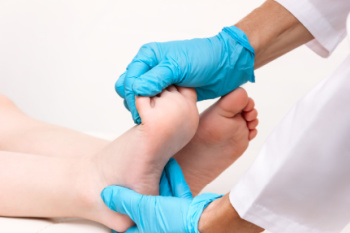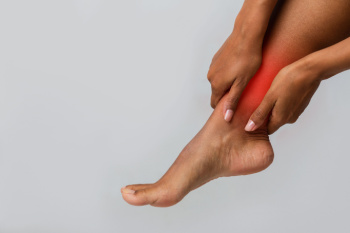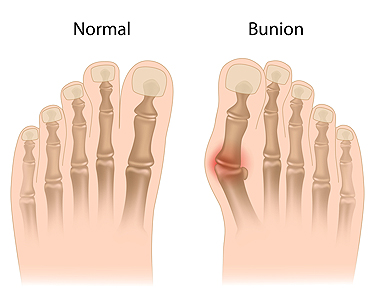
Custom orthotics offer significant benefits in managing bunions, hammertoes, and Achilles tendinosis by controlling pain and slowing the progression of deformities. Specifically designed to fit the unique contours of an individual's foot, these orthotic devices provide support and stability, redistributing pressure away from problem areas. For bunions, orthotics can alleviate discomfort by cushioning the joint and preventing further misalignment. In the case of hammertoes, custom orthotics help stabilize flexible deformities, promoting proper alignment and relieving pressure on the affected toes. Additionally, orthotics can address Achilles tendinosis by reducing strain on the tendon and promoting optimal foot positioning during movement. By providing support and alignment, custom orthotics not only manage symptoms but also help prevent the worsening of these conditions, allowing individuals to maintain an active lifestyle with reduced pain and improved function. If you have foot pain from one of the above-mentioned conditions, it is suggested that you schedule an appointment with a podiatrist to discuss how custom-made orthotics can help you.
If you are having discomfort in your feet and would like to try orthotics, contact one of our podiatrists from Greater Boston Foot Care, PLLC. Our doctors can provide the care you need to keep you pain-free and on your feet.
What Are Orthotics?
Orthotics are inserts you can place into your shoes to help with a variety of foot problems such as flat feet or foot pain. Orthotics provide relief and comfort for minor foot and heel pain but can’t correct serious biomechanical problems in your feet.
Over-the-Counter Inserts
Orthotics come in a wide variety of over-the-counter inserts that are used to treat foot pain, heel pain, and minor problems. For example, arch supports can be inserted into your shoes to help correct overarched or flat feet, while gel insoles are often used because they provide comfort and relief from foot and heel pain by alleviating pressure.
Prescription Orthotics
If over-the-counter inserts don’t work for you or if you have a more severe foot concern, it is possible to have your podiatrist prescribe custom orthotics. These high-quality inserts are designed to treat problems such as abnormal motion, plantar fasciitis, and severe forms of heel pain. They can even be used to help patients suffering from diabetes by treating foot ulcers and painful calluses and are usually molded to your feet individually, which allows them to provide full support and comfort.
If you are experiencing minor to severe foot or heel pain, it’s recommended to speak with your podiatrist about the possibilities of using orthotics. A podiatrist can determine which type of orthotic is right for you and allow you to take the first steps towards being pain-free.
If you have any questions please contact our office located in Plymouth, MA . We offer the newest diagnostic and treatment technologies for all your foot and ankle needs.









